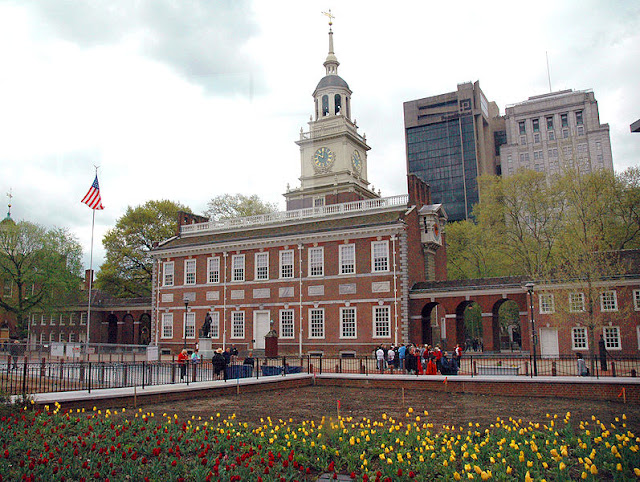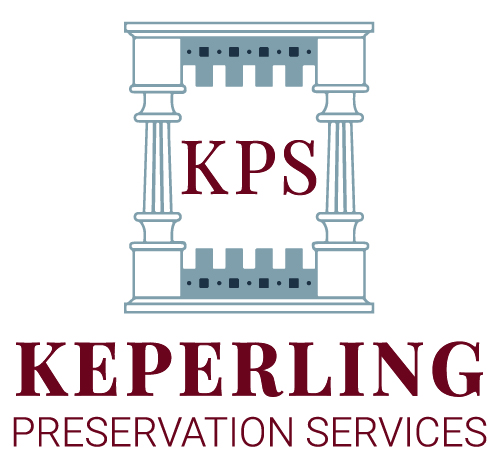Since I put last month’s e-newsletter to bed (obligatory you can sign up here) yesterday morning (hey, that e-newsletter is one wild party animal on the weekends), I’ve started researching this month’s snail-mail newsletter (another obligatory you can sign up for that one here). We’re delving into the history at Independence National Park in Philadelphia since it’s fresh on our minds from our recently completed project at the Thaddeus Kosciuszko National Memorial.
 |
Independence National Historic ParkThe park captures quite well the beauty, freedom, wide open spaces, breathing room found in our country. |
In my reading about the history of the park and its founding, I discovered that in the early 1900’s when the park was first proposed, the architects decided that the actual setting of Independence Hall wasn’t good enough and set about creating what they determined to be a “fitting setting” by clearing the half-block between Chestnut Street and Ludlow Street in front of the Hall.
So what’s so terribly notable about making it better when we preserve it? Don’t we do that all the time? It’s nothing new….
And that is the very point that struck me. We do it all the time. We set out to preserve a piece of our history, and along the way we make changes and judgment calls based on our aesthetic preferences. We don’t always preserve the way something actually looked. Sometimes what we are actually preserving is our own nostalgic idea of what it would have, should have, could have looked like.
In the case of Independence Hall, early proponents of its preservation recognized that the architecture that surrounded the traditional brick building stood in stark contrast to the iconic structure, what it represented, and what the public’s expectations were regarding its preservation. So they tore them all down to “beautify” the area and set a proper stage for the feeling they wanted to create.
If we aren’t preserving the way it actually was, is it still historical preservation? Or is it revisionist history? What if we we preserve the way the building actually was originally, but disregard what it became over the years? And then I wondered…..if simply expanding historical preservation to include the experiences and perspectives of all the people who lived it (i.e., minority groups like African-Americans, Polish-Americans, and women) is often met with cries of “revisionist history!”, why wouldn’t an actual revision of history be met with such resistance? Is it so important to us to maintain the “reality” of history we have formed in our culture’s collective mind’s eye that we are willing to overlook inaccuracies in one area while we actively seek to create inaccuracies in another?
And perhaps most importantly, what are we losing in our attempts to hold on?
With the creation of a “fitting setting” for Independence Hall, we may have quite adeptly captured the “historical context and character” of the nearly 250-year-old hall that helped give birth to our nation – and there isn’t much of an argument against this, the awe that even mere pictures of the Hall inspire is tremendous something that is without doubt worth every attempt to hold onto.
But what did we lose? When we cleared away the surrounding “buildings whose diversity is only surpassed by their ugliness” (as an architect noted in the early 1900’s) it is possible we lost a golden opportunity to showcase the very point of our nation – embracing and valuing diversity without holding any single one as “higher”, “better”, “more desirable” than another?
